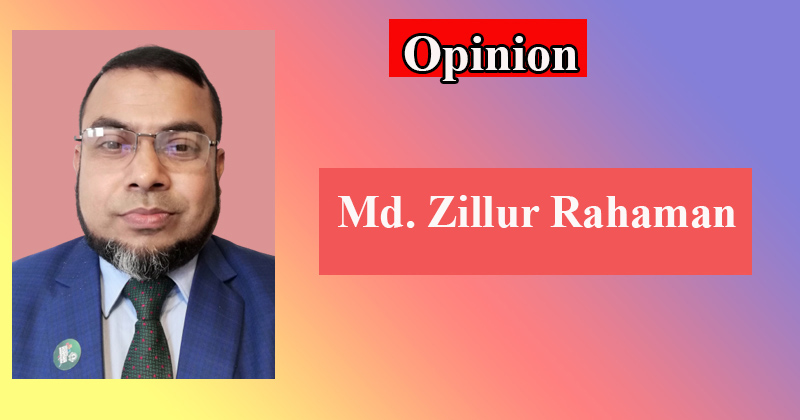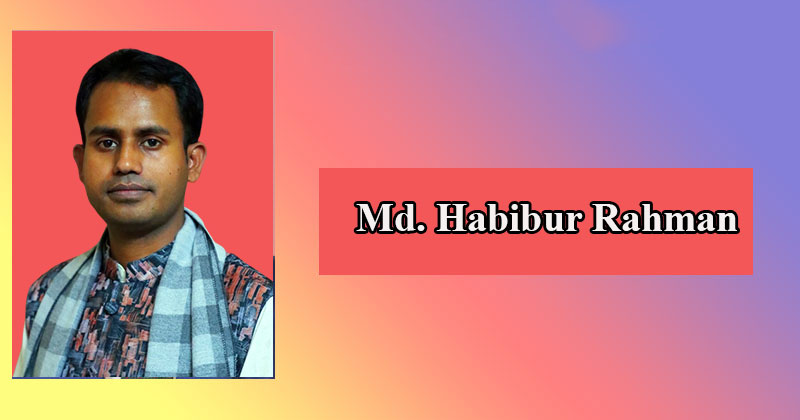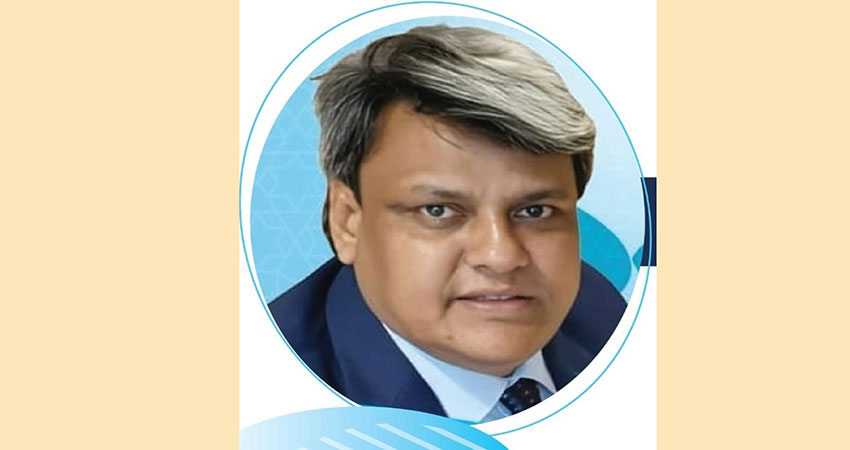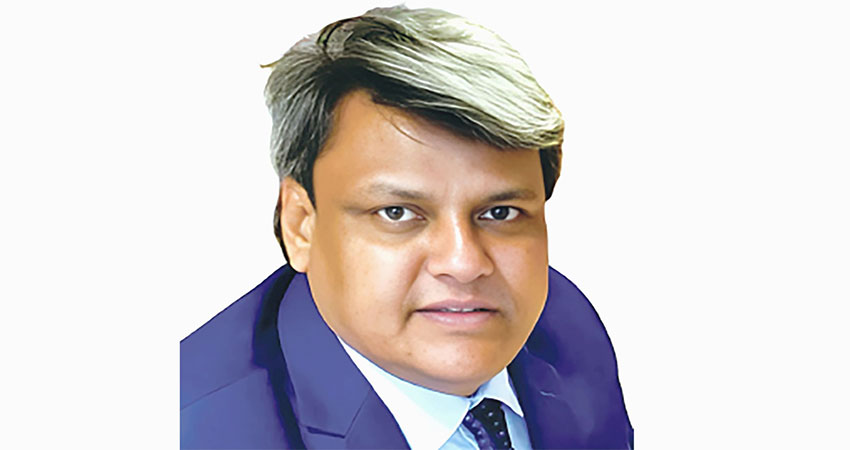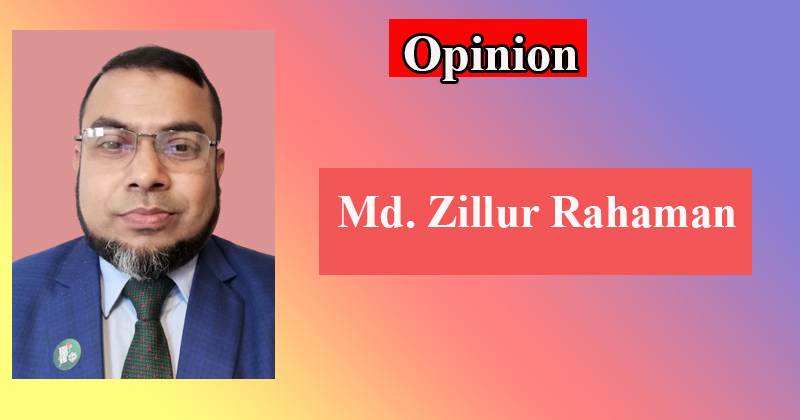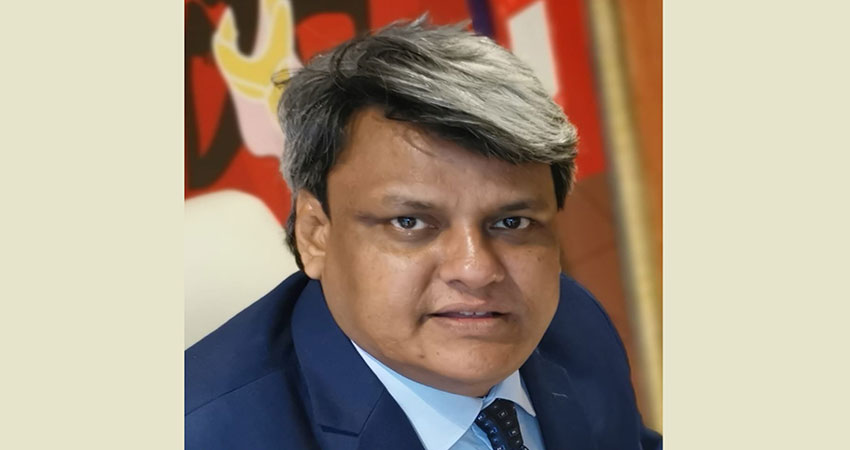Bribery and corruption are the biggest enemies of economic development and progress in any developing country. The scope and extent of corruption in Bangladesh is so wide and big that it is almost impossible and difficult to explain it in an essay of few lines. Bribery and corruption are really unethical and heinous criminal acts. Bribery and corruption is a terrible curse in the economic context of a developing country like Bangladesh. Although corruption is one of the biggest obstacles to Bangladesh's economic growth and the achievement of sustainable development goals, including poverty alleviation, the vast majority of the country's people are not corrupt. They are only victims and sufferers due to corruption. The country or the entire people of the country cannot be said to be corrupt in any way because of the corruption of the powerful and their failure to prevent it.
Recently Transparency International Bangladesh (TIB) National Corruption Survey 2021 has presented an alarming picture and it said law enforcement is the most corrupt sector in the country. Apart from this, the other two sectors in the top three are Passport and BRTA, the organization said that most kickbacks were taken in these three sectors. TIB has been conducting the National Center on Corruption Survey since 1997 to assess the nature and extent of corruption in the service sector. So far nine Household surveys have been conducted every 2 to 3 years and this household survey is the ninth such survey. TIB said the survey was conducted in 64 districts from December 13, 2021 to March 8, 2022. Data were collected on the corruption and harassment faced by the selected centers during the period from December 2020 to November 2021 while receiving services in various service sectors. The TIB considers a 'Household' to be a family living in the same dwelling, eating and drinking in the same cuisine and having one of them recognized as the family head.
TIB said in the above survey, the 2021 survey showed that 70.9 percent of 'Household' have been victims of corruption in one or the other sector while taking the services of various public and private sectors or institutions. Among them, law enforcement was identified as the most corrupt sector at 74.4 percent; It is followed by passport at 70.5 percent, BRTA at 68.3 percent, judicial services at 56.8 percent, government health services at 48.7 percent, local government institutions at 46.6 percent and land services at 46.3 percent. TIB also says that the overall analysis shows an increase in the number of household victims of corruption in the service sector in 2021 compared to 2017, where it was 66.5 percent in 2017 and 70.8 percent in 2021. However, the rate of bribery in 2021 has decreased compared to 2017, from 49.8 percent in 2017 to 40.1 percent in 2021. The results of the survey also show that corruption in local government institutions, NGOs, insurance, banking and healthcare sectors increased significantly in 2021 compared to 2017; On the other hand, corruption has decreased in the education, electricity, agriculture and gas sectors. In the sectors included in this survey, the estimated total amount of bribery or illegal transactions at the service level is about 10,830.1 crores, which is 5.9 percent of the national budget of the fiscal year 2020-21 and 0.4 percent of the GDP.
On the other hand, the Berlin-based anti-corruption organization "Transparency International (TI)" released the Corruption Perceptions Index (CPI) 2020 report in 2021. In the said report, Bangladesh's position in the global perception index of corruption has fallen two steps. The organization has prepared the CPI 2020 report with data from a total of 180 countries, Bangladesh ranks fourth lowest among 31 countries in the Asia Pacific region and Afghanistan is the only country more corrupt than Bangladesh among eight South Asian countries. According to the index, the least corrupt country in South Asia is Bhutan, with a score of 68. According to the report, Bangladesh ranks 12th from the bottom in the list of corrupt countries but in 2019 it was 14th. In terms of ranking (from better to worse) in the index, there has been no change in Bangladesh's position. This time again Bangladesh is at 146th position and Bangladesh scores 26 out of 100.
According to TIB, the possible causes of corruption in Bangladesh are - mismatch of anti-corruption commitment and its implementation; not identifying the corruption of high-level political leaders and bureaucrats; Inability to take legal action against high-level corrupt individuals, including governments and political parties; Financial and banking sector increase in loan defaults and fraud; Not reducing political control over land-river-channel acquisition, tendering and recruitment; Non-stopping of illegal money transactions; weak accountability; lack of effectiveness and independence of the ACC; Impunity and weak rule of law. That is, not establishing the idea that corruption is a punishable crime and the law is equal for all, and narrowing the sphere of media and civil society.
Anti-corruption campaigners think that political leaders are responsible for 90% of corruption, their dirty politics, personal interests, greed, desire to get rich overnight is one of the causes of corruption. They said that a well-thought-out way out of corruption is to reduce income inequality by curbing nepotism, nepotism and middlemen. In order to make Bangladesh a country free from bribery and corruption, the goodwill of political leaders and bureaucrats should not only exist on paper, but should exist in reality. Because, without the goodwill of all conscious and responsible citizens, it will never be possible to fight corruption, not in any country, not even in our country.
Corrupt means self-interested, unscrupulous and s/he always pursues his own interests. A selfish person is busy with his selfish pursuits, s/he does not care about the welfare of the society, the welfare of the country. Their conscience does not allow them to think about the improvement and prosperity of the national life, that is why unscrupulous, corrupt people are the biggest enemy of the country's development and progress, as an obstacle to all the progress of the country.
Corruption is a hindrance to accelerating development work. A morally developed, honest, conscientious person is a great asset to the society and the nation no matter what position he holds. Even if he does not benefit, at least no one is likely to be harmed. On the other hand, no matter how high the position of an immoral person, he is not worthy of respect. Because of his rank, people may not say anything to him in front but hate him from the bottom of his heart. There is more risk of harm to the country and nation than benefits.
Corruption has been a major disease of Bangladesh since its creation. It has been hampering the overall progress and development of the country for ages. It is not possible for any government to suppress corruption alone. Along with the government, we need to create values and raise awareness at all levels. Not only the government or the political party, but also the conscious citizens of all levels should stand against corruption. If the disease can be prevented, it is more useful than treating the disease. If we can't prevent the rampant spread and claws of corruption with our best sense, values, and patriotism, then the spread of the national disease called corruption will continue to increase!
Writer: Banker and Columnist
The Daily Citizentimes/OH/MY
